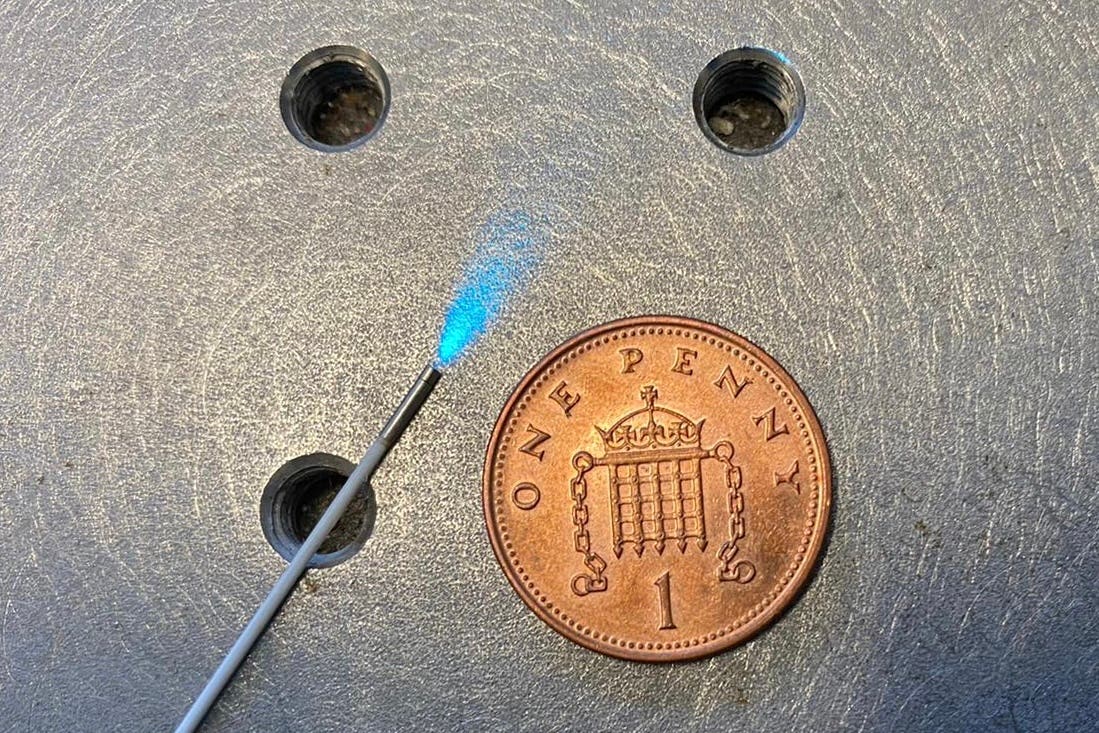Tiny microscope ‘could speed up breast cancer treatment and cut waiting lists’
The endo-microscope is designed to be inserted into the body to provide views of tissue and organs.

Your support helps us to tell the story
From reproductive rights to climate change to Big Tech, The Independent is on the ground when the story is developing. Whether it's investigating the financials of Elon Musk's pro-Trump PAC or producing our latest documentary, 'The A Word', which shines a light on the American women fighting for reproductive rights, we know how important it is to parse out the facts from the messaging.
At such a critical moment in US history, we need reporters on the ground. Your donation allows us to keep sending journalists to speak to both sides of the story.
The Independent is trusted by Americans across the entire political spectrum. And unlike many other quality news outlets, we choose not to lock Americans out of our reporting and analysis with paywalls. We believe quality journalism should be available to everyone, paid for by those who can afford it.
Your support makes all the difference.A tiny microscope that can be manoeuvred through small spaces inside the body during surgery could speed up breast cancer treatment and help cut NHS waiting lists, according to the scientists who created it.
Experts from Imperial College London have developed an endo-microscope that is less than 1mm in diameter – about the width of 25 human hairs – and is designed to be inserted into the body to provide views of tissue and organs.
The device is able to produce images from inside the tissue with “unprecedented speed”, the team said.
The hope is that the endo-microscope, which is being developed by Dr Khushi Vyas and colleagues at Imperial College London, will help surgeons identify cancerous cells a hundredth of a millimetre in size at a much faster rate than traditional methods.
It will help reduce the need for follow-up operations to remove cancerous cells that previously evaded detection, the team said.
The instrument will also help with breast-conserving surgery, where the surgeon removes the cancer while leaving as much normal breast as possible.
At present, up to 20% of patients treated through breast-conserving surgery currently need such operations.
The researchers said using the device will help surgeons identify suspicious tissue around tumours very quickly and accurately – with the endo-microscope generating up to 120 frames per second.
The development of the endo-microscope is being supported by the Engineering and Physical Sciences Research Council (EPSRC), part of UK Research and Innovation.
EPSRC director for cross-council programmes, Dr Kedar Pandya, said: “By reducing the time it takes to identify cancerous cells and improve the accuracy of imaging, the endo-microscope developed by Dr Vyas and his team could benefit patients and the NHS by reducing waiting lists.”
Dr Khushi Vyas added: “Our aim is to proceed to clinical trials with a view to the system becoming available for deployment in around five years.”
The researchers have used their system for preliminary studies on human cancer tissue and are now testing its use by surgeons and pathologists on laboratory samples of cancerous tissue.